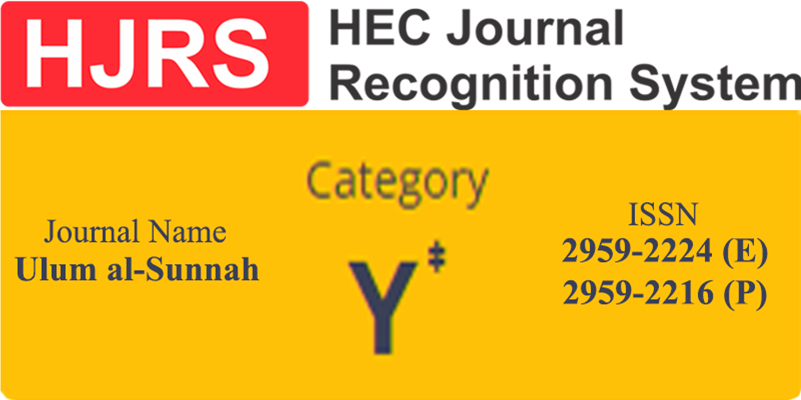نظریہِ مقاصدِ شریعت کی تفہیم اور عصری تعبیرات
The Understanding of the Theory of Objectives of the Shari'ah and Contemporary Interpretations
Keywords:
Sharia’s Intents, Nobility of Nature, Obligations, Social Discipline, Presidential Government, Khilafah, Human RightsAbstract
The term objectives of Shariah was first used by Imam al-Harameen al-Jawaini (died 478 AH). His book on the principles of jurisprudence Al-Burhan Fi Usul al-Fiqh is an excellent book. In this book, he regularly used the term objectives of Shariah, while another famous book of his, Ghiyath alumam fi -Tiyath al-Zulam, which is known as al-Ghiyathi, has a formal argument on the objectives of Shariah. By the time of Imam Muhammad al-Ghazali, the principles of jurisprudence had taken the status of a permanent knowledge. By combining the concept of masaleh and objectives, Imam al-Ghazali declared the objectives of the Shariah as an important pillar of the principles of jurisprudence from the beginning and reasoned discussion on it. He compiled a list of objectives of Shari'ah which became known among the scholars as Kulyat-E-Khamsa. These objectives elucidate the spirit of Shariah and are thus termed the 'intentions of Shariah.' Over time, jurists have articulated these objectives in various ways. Prominent scholars like Imam Ghizali, Imam al-Shatibi, Izz ibn Abd al-Salam, Ibn Ashur, and Shah Waliullah have listed the 'five objectives' (Kulliyat Khamsah), which include the preservation of religion (Hifz al-Deen), life (Hifz al-Nafs), intellect (Hifz al-Aql), lineage (Hifz al-Nasl), wealth (Hifz al-Mal), and honor (Hifz al-Izz). Later scholars expanded this list, and we have added our scholarly opinion by including the preservation of nobility of Nature (Hifz-e-Makaarim al-Fitrat), social order (Hifz Nazm al-Muashira), and the establishment of a Caliphate based on the Prophetic model (Khilafah Ala Minhaj al-Nubuwwah).The reformation of human beings is possible only when they achieve their goals. When the necessities of life are available and there is a certainty of intellectual and spiritual security, then man determines his priorities in a free and satisfied position, and this is to provide intellectual and spiritual security and peace. It is expediency. Here we mean by expediency we mean the protection of the objectives of Sharia.
Downloads
Published
How to Cite
Issue
Section
License
Copyright (c) 2024 Dr. Syed Hamid Ali Bokhari

This work is licensed under a Creative Commons Attribution-NonCommercial 4.0 International License.
This is an open-access journal which means that all content is freely available without charge to the user or his/her institution. Users are allowed to read, download, copy, distribute, print, search, or link to the full texts of the articles, or use them for any other lawful purpose, without asking prior permission from the publisher or the author. All articles are available on the internet to all users immediately upon publication. Non-commercial use and distribution in any medium are permitted, provided the author and the journal are properly credited.









